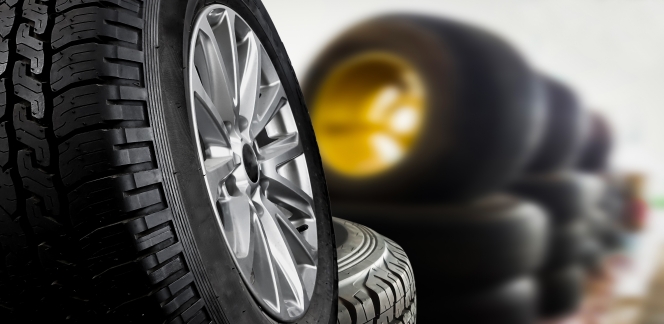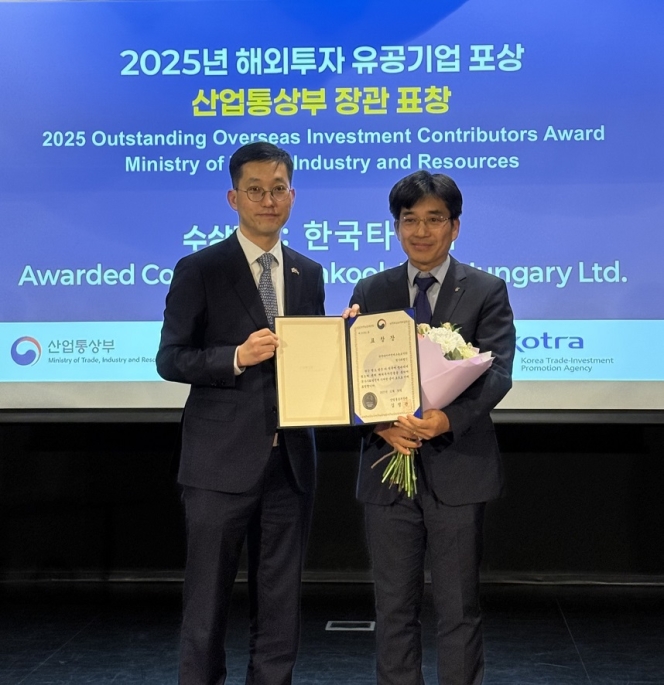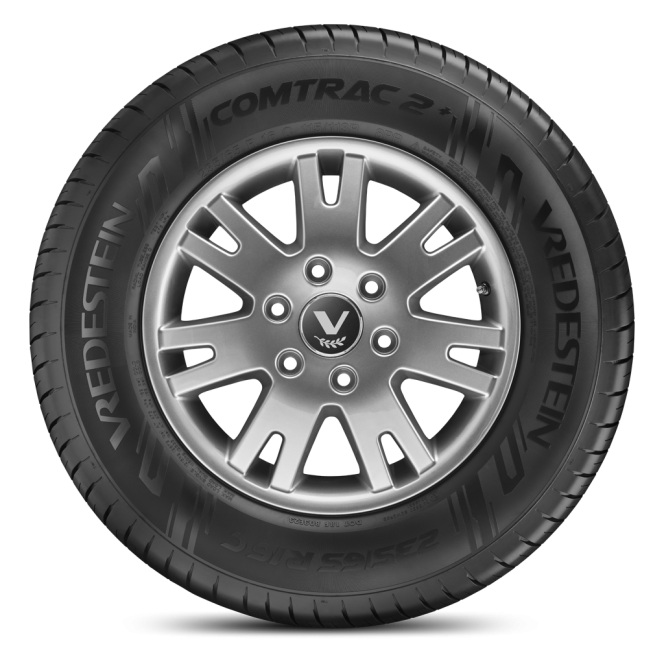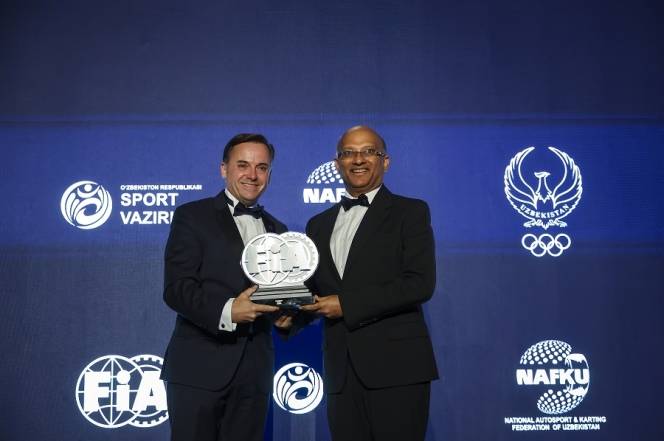Tyre Makers Expect Another Year of Modest Growth Amid High Costs: CRISIL
- By TT News
- November 18, 2024

Natural Rubber Prices to Pressure Profit Margins; Credit Profiles Remain Stable
Tyre manufacturers in India are bracing for a second consecutive year of single-digit revenue growth as rising natural rubber prices and global economic challenges weigh on the sector. Revenue is forecast to grow seven percent to eight percent in the current fiscal year, driven by a three percent to four percent increase in both realisations and volume, according to an analysis by CRISIL Ratings.
While this marks a significant improvement from the previous fiscal year, when revenue grew at approximately four percent, it falls short of the compound annual growth rate of 21 percent between fiscal years 2021 and 2023.
Gradual price increases to offset cost pressures
Tyre makers are implementing gradual price hikes to mitigate the impact of surging natural rubber costs, which account for nearly 50 percent of raw material expenses. Realisation growth is expected to be staggered throughout the year as manufacturers carefully balance price increases with market demand.
Volume growth, projected at three percent to four percent, will be driven primarily by replacement demand rather than new vehicle sales. However, the limited ability to fully pass on higher input costs will strain operating margins, which are expected to shrink by approximately 300 basis points to 13 percent this fiscal year, down from 16 percent in the previous year.
“Domestic demand accounts for around 75 percent of the industry’s sales (in tonnage terms), while the rest is exported. About two-thirds of the domestic demand is from the replacement segment and the rest is from original equipment manufacturers (OEMs). This fiscal, replacement demand, mainly from commercial and passenger vehicles, will drive volume growth, while OEM demand is expected to rise only between one and two percent due to slow growth in commercial vehicle sales,” says Anuj Sethi, Senior Director, CRISIL Ratings.
Stable cash flows and balance sheets
Despite these challenges, tyre makers are expected to maintain stable credit profiles due to robust balance sheets and prudent capital expenditure. Cash flow generation, though modestly affected, will remain substantial. Gearing and interest coverage ratios are projected to stay steady at approximately 0.3 times and seven to eight times, respectively, consistent with last fiscal year’s levels.
A CRISIL Ratings analysis of the six largest tyre manufacturers, which together account for about 87 percent of the industry’s revenue, supports this outlook.
Export growth weakens
Export growth is forecast to remain muted at two percent to three percent for the year, reflecting sluggish demand in key overseas markets such as North America and Europe, which collectively account for 60 percent of India’s tyre exports. Geopolitical tensions and supply-chain disruptions have exacerbated the situation, leading to higher freight costs and extended transit times, further curbing export demand.
Global shortages drive up raw material costs
The sharp rise in natural rubber prices is primarily attributed to a global supply shortage caused by adverse weather conditions in leading producer countries like Thailand and Vietnam, which together account for approximately 50 percent of global rubber production.
In addition to natural rubber, the cost of other critical raw materials, including nylon tyre cords, carbon black, styrene-butadiene rubber and polybutadiene rubber, remains volatile due to their dependence on crude oil prices.
Outlook and challenges
Looking ahead, tyre makers will likely continue to face pressures from raw material price volatility, original equipment manufacturer (OEM) demand fluctuations, potential changes in import duties, and the implementation of Extended Producer Responsibility regulations.
Naren Kartic. K, Associate Director, CRISIL Ratings, says, “To support domestic tyre manufacturers, the Indian government has extended the countervailing duty on Chinese radial tyres for five years to ease competition. Plus, given the sluggish demand and pressure on operating margins, tyre makers are implementing appropriate price increases and prudent capital expenditure to ensure that capital efficiencies remain satisfactory. With capacity utilisation at around 80 percent, tyre manufacturers rated by us are investing around INR 55 billion this fiscal, slightly lower than last fiscal, with a focus on necessary capacity enhancements and debottlenecking.”
Veteran Racer Sanjay Takale To Lead India's Charge At Dakar 2026
- By TT News
- December 17, 2025

India will once again be represented at the world's most formidable rally raid as veteran racer Sanjay Takale prepares for his second attempt at the Dakar Rally in 2026. This event, renowned as the ultimate endurance challenge, will see Takale draw upon his disciplined approach and decades of international racing expertise across both motorcycles and cars. His participation underscores a continued, though rare, Indian presence on this global motorsport stage.
Takale’s previous campaign was historically successful, culminating in an 18th-place overall finish. Framing his upcoming effort as an evolved chapter, he is focusing on intensified preparation and strategic refinement. This return is fuelled by over 35 years of accumulated track insight and a sharpened competitive perspective.
In addition to his driving career, Takale’s role as Director of aerpace Industries allows him to champion broader national ambitions in engineering and mobility. He consistently frames motorsport as a dynamic proving ground for core industrial principles like precision, systemic endurance and meticulous execution.
Ultimately, Takale's journey back to the Dakar starting line symbolises India's growing footprint in international motorsport. It is a narrative built not on fleeting speed but on profound experience, resilience and a dedicated pursuit of excellence under the world's most extreme racing conditions.
Takle said, “My first Dakar was an extraordinary experience. Dakar changes you once you race it; you are never the same. It challenges you mentally, breaks you down and teaches you resilience, discipline and the true meaning of fighting back. I emerged not just as a stronger driver but as a different person altogether. This year, my focus is clear to return, finish the rally again and significantly improve my position. I will once again be competing for my team, aerpace Racers, with technical support from Compagne Sharenne, France. I am proud to represent India as the only four-wheeler entry for the second consecutive year. My goal is simple: to see the finish line and to finish stronger.”
Korean Ministry Of Trade Commends Hankook Tire For Overseas Investment Excellence
- By TT News
- December 16, 2025

Hankook Tire has been honoured with a Ministerial Commendation by the Ministry of Trade, Industry and Resources of Korea. The honour was conferred at the 2025 Outstanding Overseas Investment Contributors Awards, an event hosted at the Korean Cultural Center in Budapest, Hungary, designed to recognise firms that enhance national competitiveness through global investment. During the ceremony, the company's leadership detailed its achievements to an audience of diplomatic officials and fellow Korean businesses operating in the region.
The award celebrated Hankook Tire's excellence across four critical areas. Economically, its strategic manufacturing base in Rácalmás, Hungary, established in 2008, has become a significant contributor to the Korean economy through consistent profit repatriation. The company has also acted as a catalyst for other Korean enterprises, enabling market entry for supply chain partners while securing its own strategic alliances within Europe, thereby strengthening the collective agility and global standing of Korean industry.
Beyond commerce, the company's deep local social commitment was highly recognised. The Hungarian plant is a cornerstone of the regional economy, having multiplied its local workforce to approximately 3,000 employees and maintaining this stability even through periods of global economic uncertainty. This commitment extends through extensive community outreach, including the long-term donation of tyres to enhance public and private mobility safety, alongside targeted investments in local infrastructure, social welfare and youth scholarships.
Furthermore, Hankook Tire serves as a central pillar for the Korean business community in Hungary. By holding leadership roles in major business associations, the company facilitates essential dialogue and practical cooperation, helping to resolve common challenges and support the sustainable operation of Korean enterprises in the market. Through this powerful combination of economic performance, social integration and community leadership, Hankook Tire exemplifies the impactful role of responsible overseas investment in fostering mutual growth and strengthening international ties.
Ho Taek Lim, Managing Director of Hankook Tire Hungary plant, said, “As a representative company with deep roots in Hungary, Hankook Tire is committed to fostering unity within the Korean community and supporting the successful establishment of Korean companies entering the market. Through close collaboration with local institutions, we will continue enhancing the competitiveness of Korean companies in Europe while advancing Korea’s national interests.”
Apollo Tyres Launches Vredestein Comtrac 2+ Van Tyre
- By TT News
- December 16, 2025

Apollo Tyres Ltd has introduced the Vredestein Comtrac 2+, a new summer tyre engineered for light commercial vehicles. Set for a European launch in January 2026, this premium model will be available in 21 sizes for rims from 15 to 17 inches, including extra-load variants for heavier demands. It builds upon its predecessor with significant advancements in durability, efficiency and overall performance, aiming to lower the total cost of ownership for fleet operators.
A key innovation is a fourth-generation polymer compound, which boosts abrasion resistance by 13 percent. This advancement extends tread life, reduces replacement frequency and minimises the release of microplastics from wear. The tyre’s construction includes a reinforced bead area and a robust carcass for enhanced stability and reliability under heavy loads, improving vehicle uptime. Safety in wet weather is addressed through a specialised silica filler and an efficient tread pattern designed to prevent aquaplaning by rapidly dispersing water.
Furthermore, the Comtrac 2+ achieves a seven percent reduction in rolling resistance, improving fuel economy for conventional vehicles and helping to extend the driving range of electric and hybrid vans. Every aspect of the tyre is crafted for maximum longevity and cost efficiency, supporting business operations with fewer interruptions. The product also meets the stringent requirements of the European Union Deforestation Regulation, aligning with contemporary environmental and sustainability standards.
Yves Pouliquen, Vice President, Commercial EMEA, Apollo Tyres Ltd, said, “With the Comtrac 2+, we set out to address the changing demands of today’s light commercial vehicle operators, whether independent trade professionals or major fleet managers. Our R&D Team has engineered the tyre to deliver longer tread life, lower rolling resistance and a safer, more comfortable ride that drives greater efficiency – all at an accessible price point.”
MRF Tyres Clinches Third FIA European Rally Championship Team Title
- By TT News
- December 16, 2025

MRF Tyres has once again proven its motorsport pedigree by securing the 2025 FIA European Rally Championship Team Title. The official accolade was presented at the season-ending FIA Awards Gala in Tashkent, where Vice-Chairman and Managing Director Arun Mammen collected the trophy. This gala represents the pinnacle of the international motorsport calendar, formally recognising champions from across the discipline.
This victory marks the team’s third ERC crown, following previous successes in 2022 and 2023. It was earned through a campaign defined by remarkable consistency and adaptability across diverse rally stages. Strategic tyre choices and seamless coordination between the team’s personnel, engineers and driving crews were fundamental to this achievement, highlighting the programme’s overall strength and the reliability of its products.
The company has extended its appreciation to every individual who contributed to this result. The recognition at such a distinguished forum reinforces the company’s commitment to excellence and cements its position as a leading force on the global rally stage.
Mammen said, “We are deeply honoured to receive the Team Title at such a prestigious occasion. This award recognises not only the work of our engineers and staff, but also the spirit, dedication and resilience of the entire MRF Tyres organisation, both on and off the stages of the 2025 European Rally Championship. When preparation, performance and passion come together, tyres can make the difference. This trophy underlines our commitment and encourages us to continue delivering our very best in the seasons to come.”







Comments (0)
ADD COMMENT